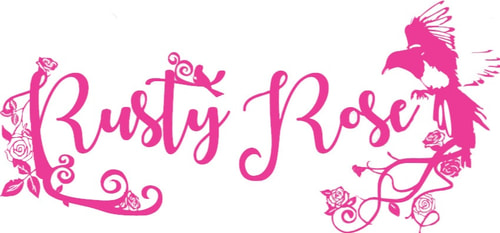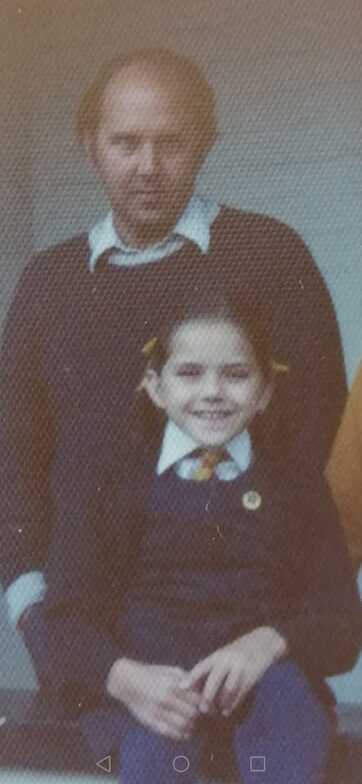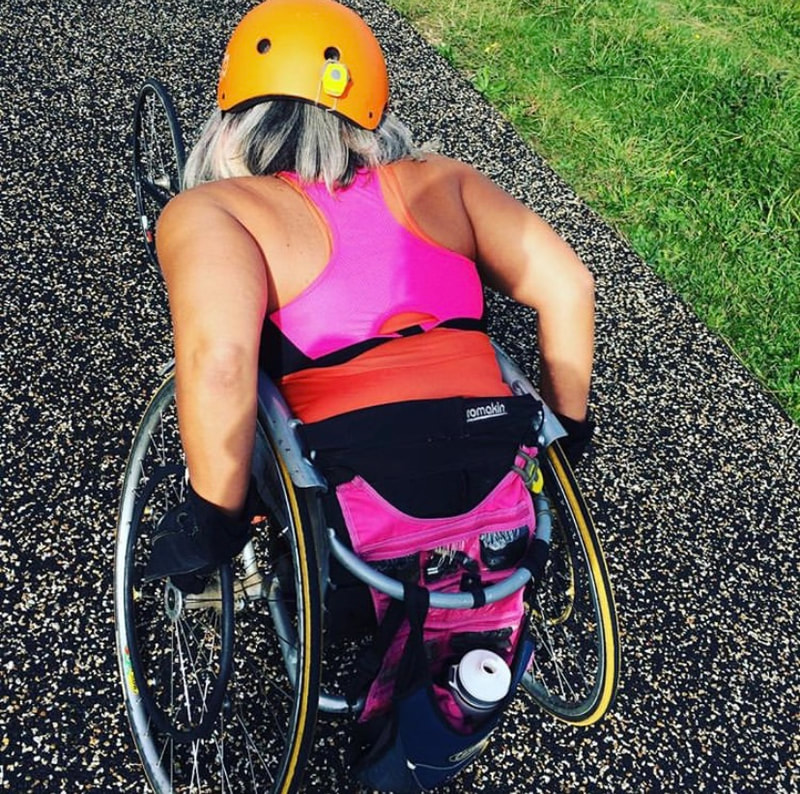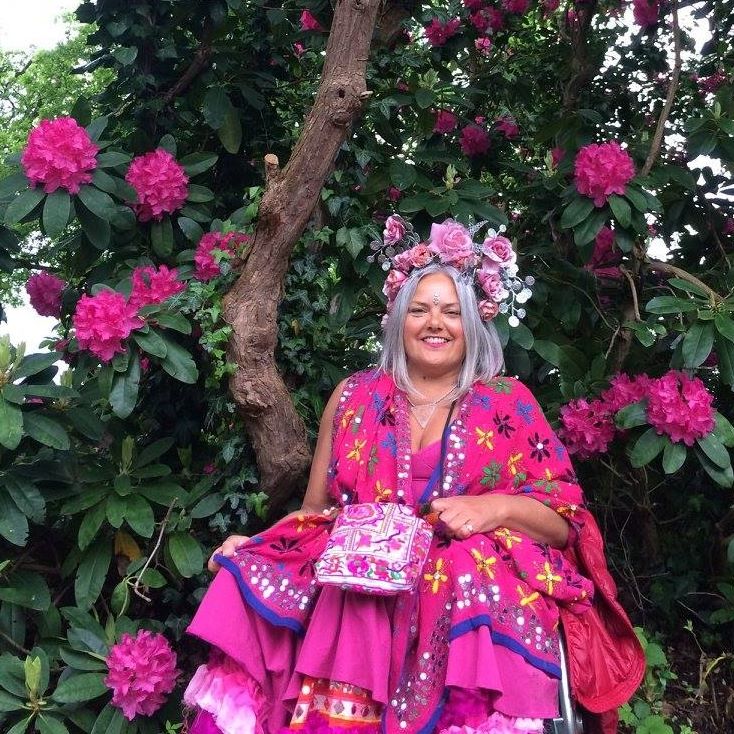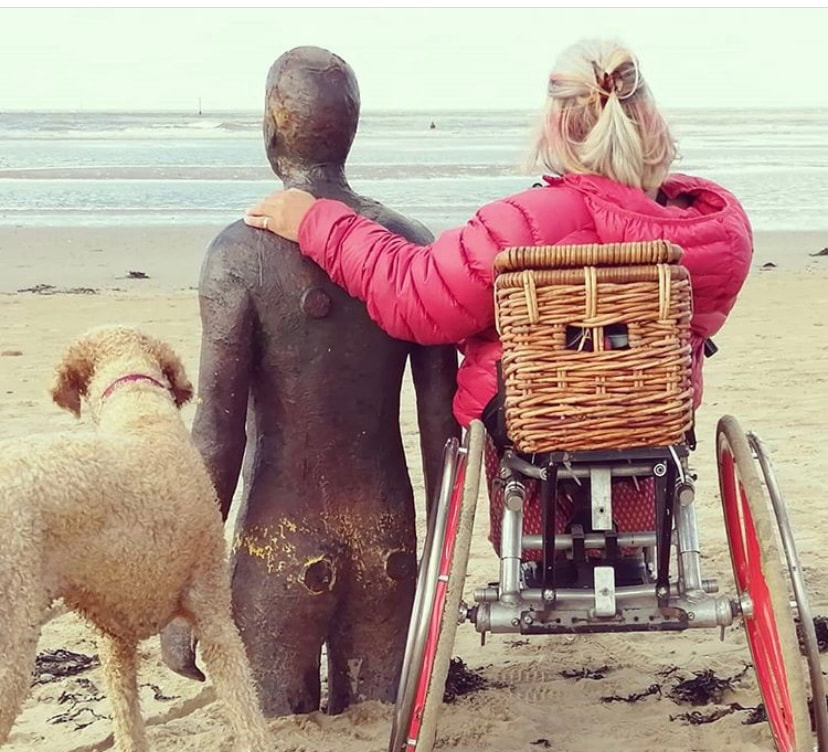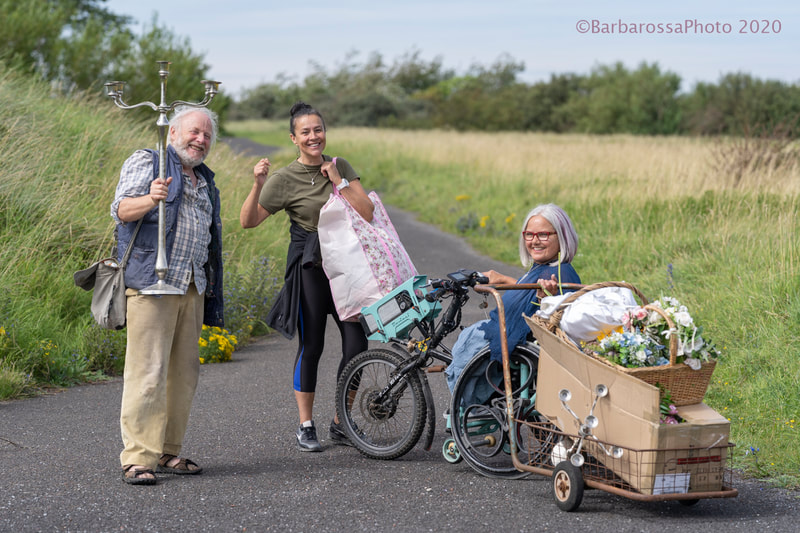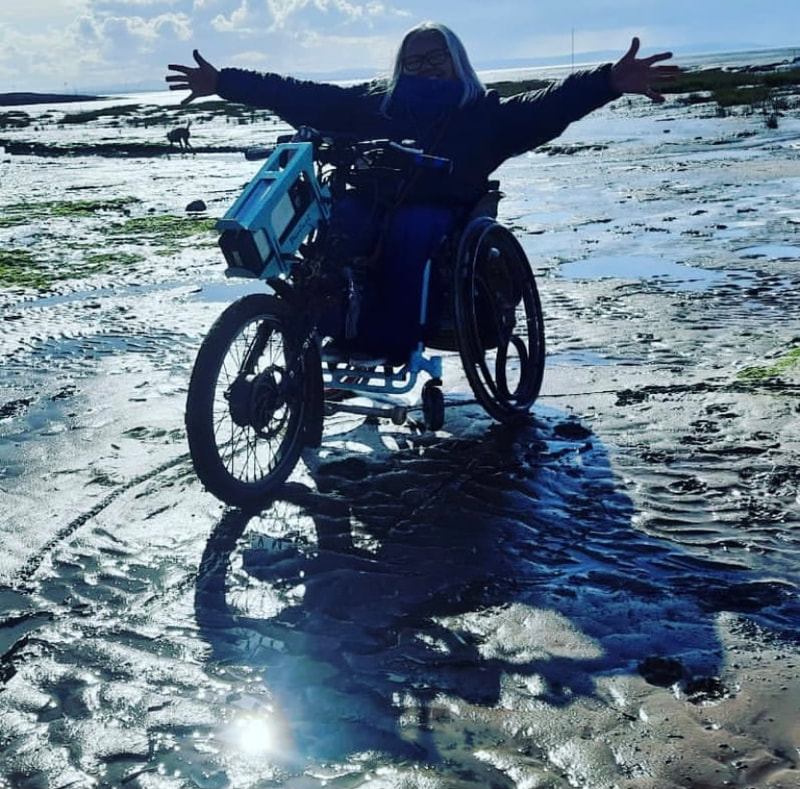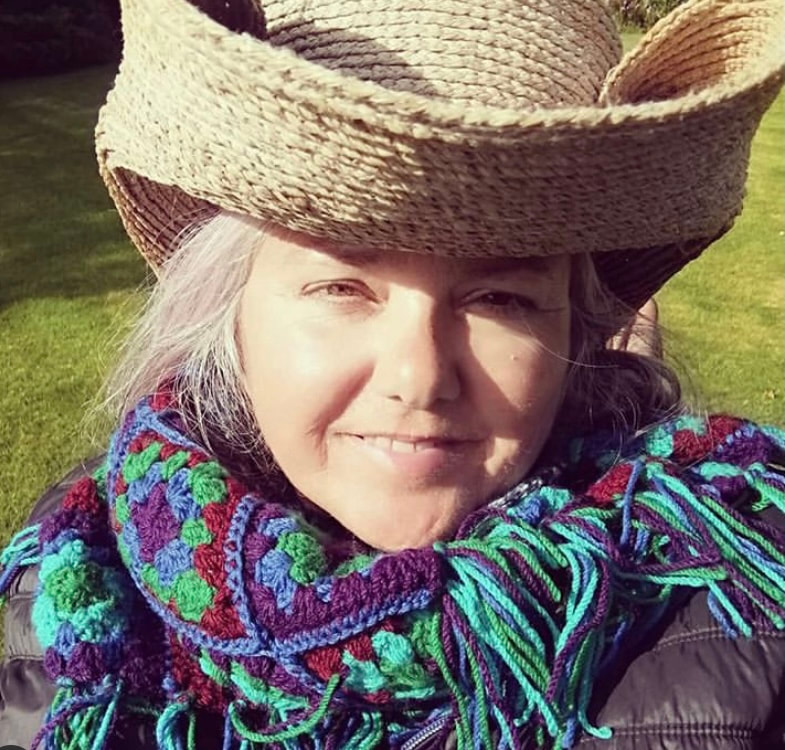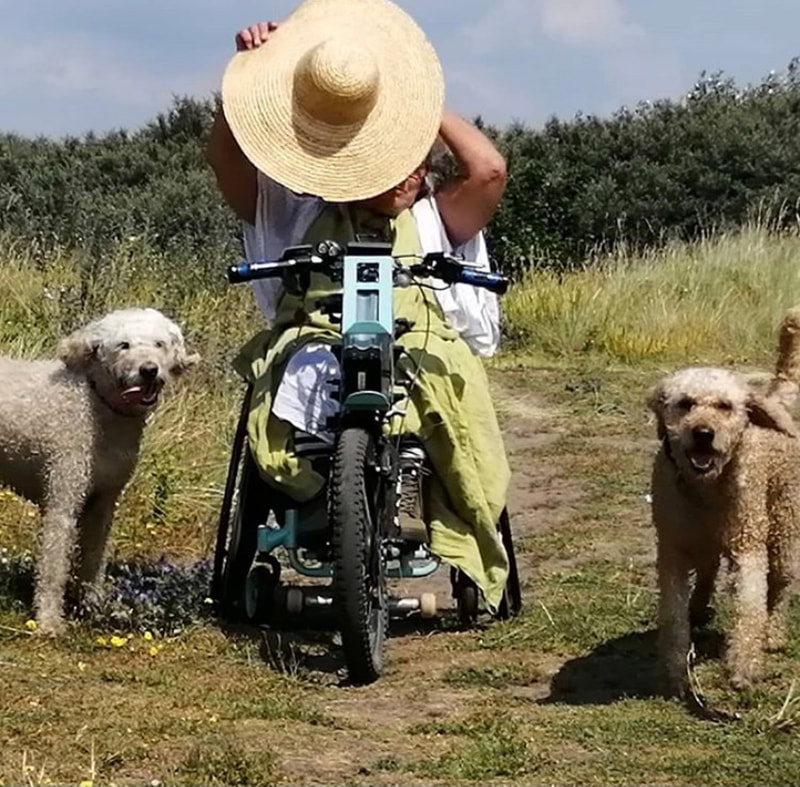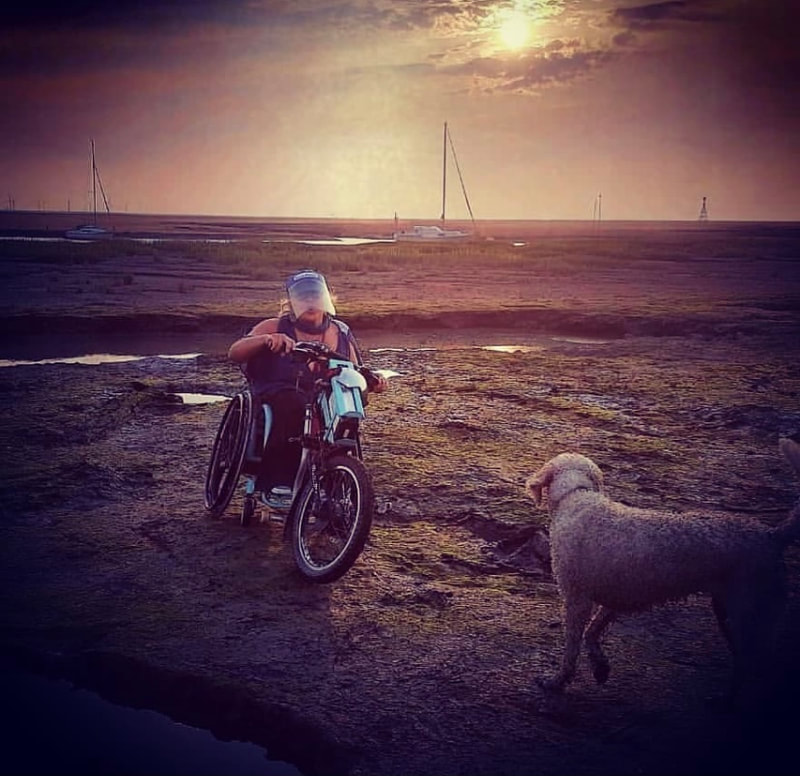SPINA BIFIDA
Myelomeningocele, Spina Bifida was my diagnosis. It's when a baby's spine & spinal cord fail to develop properly during the first few weeks of pregnancy. This neural tube defect causes a gap in the spine which leads to various levels of paralysis. It’s common for the fluid within the sac to break through an opening in the baby's back causing permanent nerve damage to the spinal cord. Doctors still don’t know the root causes of Spina Bifida, for some time now mothers have been encouraged to take folic acid during pregnancy which is proven to help with prevention.
For young parents discovering their newborn baby has Spina Bifida it can be hugely overwhelming. When I was born in the sixties to parents in their twenties there was very little information or help to be found. It was a miracle if the baby survived the first 24hours, so I was christened immediately in the hospital. The general diagnosis was grave assuming that babies with so many issues who survived would probably die within the next 3 to 6 months. I survived the day, the next six months & now in my fifties I am able to clearly re-visit & appreciate the struggles my parents had to face. Those early years were difficult. Particularly for my mum as from day one I was taken from her, incubated & immediately hospitalised. There were no counselling services, information or support on how to manage & cope.Hospitals became my second home that involved so many appointments & operations. In those days, it was a place I dreaded, at an early age I didn’t appreciate the good work carried out by our fabulous NHS nurses & doctors.
From as soon as I was able I crawled everywhere & continued to do so up till the age of fourteen. The floor was my happy place, my arms grew strong giving my upper body the freedom to move freely, independently. I was certainly not going to be defined by any restrictions particularly my wheelchair.I wore flip flops on my paws & friends would grab my feet in a wheelbarrow style enabling me to experience adventurous places that a wheelchair could not access. Enabling me this freedom as a child was huge. I remember chilly air on my breath whilst crunching through thick snow, family holidays in the snowy alps. The ground was a foot from my nose, wearing a bin liner sellotaped tightly around my waist I explored in my own unique way the snow covered forest floor. Yes my knees would be torn to tatters and my boots badly scuffed but mum would sew leather patches onto the knees of trousers, dresses & skirts… I found so many alternative ways of getting about, from using a trolly, to hanging over the back of my wheelchair & running with my hands. However, during my early teenage years my father would constantly remind me to start using my wheelchair because in his eyes crawling wasn't very ladylike and neither were the calluses on my knuckles.
There was a lot of fun mixed with a lot of frustration. I remember times where I would cry myself to sleep at night. Self hatred, self pity, frustration & anger at being made ‘differently’. My mother would put me to bed tell me to say my prayers & I would spend the next few hours challenging my God, my maker with questions of ‘why’. I was young, isolated & lonely, I was not outgoing or confident as a child so found it really difficult breaking through those exclusive barriers. I just wanted to be the same as my contemporaries, brother and my friends.
Myelomeningocele, Spina Bifida was my diagnosis. It's when a baby's spine & spinal cord fail to develop properly during the first few weeks of pregnancy. This neural tube defect causes a gap in the spine which leads to various levels of paralysis. It’s common for the fluid within the sac to break through an opening in the baby's back causing permanent nerve damage to the spinal cord. Doctors still don’t know the root causes of Spina Bifida, for some time now mothers have been encouraged to take folic acid during pregnancy which is proven to help with prevention.
For young parents discovering their newborn baby has Spina Bifida it can be hugely overwhelming. When I was born in the sixties to parents in their twenties there was very little information or help to be found. It was a miracle if the baby survived the first 24hours, so I was christened immediately in the hospital. The general diagnosis was grave assuming that babies with so many issues who survived would probably die within the next 3 to 6 months. I survived the day, the next six months & now in my fifties I am able to clearly re-visit & appreciate the struggles my parents had to face. Those early years were difficult. Particularly for my mum as from day one I was taken from her, incubated & immediately hospitalised. There were no counselling services, information or support on how to manage & cope.Hospitals became my second home that involved so many appointments & operations. In those days, it was a place I dreaded, at an early age I didn’t appreciate the good work carried out by our fabulous NHS nurses & doctors.
From as soon as I was able I crawled everywhere & continued to do so up till the age of fourteen. The floor was my happy place, my arms grew strong giving my upper body the freedom to move freely, independently. I was certainly not going to be defined by any restrictions particularly my wheelchair.I wore flip flops on my paws & friends would grab my feet in a wheelbarrow style enabling me to experience adventurous places that a wheelchair could not access. Enabling me this freedom as a child was huge. I remember chilly air on my breath whilst crunching through thick snow, family holidays in the snowy alps. The ground was a foot from my nose, wearing a bin liner sellotaped tightly around my waist I explored in my own unique way the snow covered forest floor. Yes my knees would be torn to tatters and my boots badly scuffed but mum would sew leather patches onto the knees of trousers, dresses & skirts… I found so many alternative ways of getting about, from using a trolly, to hanging over the back of my wheelchair & running with my hands. However, during my early teenage years my father would constantly remind me to start using my wheelchair because in his eyes crawling wasn't very ladylike and neither were the calluses on my knuckles.
There was a lot of fun mixed with a lot of frustration. I remember times where I would cry myself to sleep at night. Self hatred, self pity, frustration & anger at being made ‘differently’. My mother would put me to bed tell me to say my prayers & I would spend the next few hours challenging my God, my maker with questions of ‘why’. I was young, isolated & lonely, I was not outgoing or confident as a child so found it really difficult breaking through those exclusive barriers. I just wanted to be the same as my contemporaries, brother and my friends.
THE SYSTEM
Lockdown & feeling locked is an experience I can find myself in. As a permanent wheelchair user inclusion & opportunities for all is still a huge barrier here in the UK & far worse for people in poorer countries where disability is often seen as a curse. People are hidden away permanently in shame, living in inhumane conditions given no respect. There have been improvements made in the last twenty years however disabled people are still marginalised, kept down & unequal in many ways.
I was written off & rejected by the education system because the special school I had attended since I was ten informed my parents that due to my disability, I would remain an underachiever & therefore there was no point in the council continuing to pay for me to stay on to do my exams. I left school at sixteen with no qualifications & came home to live with my parents.
Having spent the last six years at boarding school meant that when I returned home my social life was pretty sparse & I was lonely at a time when as a teenager I should have been out experiencing independence & freedom. The transport system was impossible & totally inaccessible. I could not get out & about. Occasionally a friend would visit & spill over with excitement about the parties & disco’s they had been to &the boyfriends they were meeting. For some reason I was excluded & never asked to join them. It did not occur to my friends that I might want to be invited, instead it seemed quite acceptable to visit, sharing with me all their stories leaving me feeling invisible, isolated, frustrated and lonely.
My first achievement & my only way out was learning to drive as soon as I was able. This gave me the freedom to go anywhere. My little blue mini gave me instant independence for the first time in my life. I took myself to the local higher educational college, it wasn’t easy but I worked & hard got the qualifications ‘they’ said I would never achieve. I then went onto art college where I found kindred spirits, not wheelchair users, artists, my tribe. For the first time in my life I felt fully included, I fitted the mold.
Lockdown & feeling locked is an experience I can find myself in. As a permanent wheelchair user inclusion & opportunities for all is still a huge barrier here in the UK & far worse for people in poorer countries where disability is often seen as a curse. People are hidden away permanently in shame, living in inhumane conditions given no respect. There have been improvements made in the last twenty years however disabled people are still marginalised, kept down & unequal in many ways.
I was written off & rejected by the education system because the special school I had attended since I was ten informed my parents that due to my disability, I would remain an underachiever & therefore there was no point in the council continuing to pay for me to stay on to do my exams. I left school at sixteen with no qualifications & came home to live with my parents.
Having spent the last six years at boarding school meant that when I returned home my social life was pretty sparse & I was lonely at a time when as a teenager I should have been out experiencing independence & freedom. The transport system was impossible & totally inaccessible. I could not get out & about. Occasionally a friend would visit & spill over with excitement about the parties & disco’s they had been to &the boyfriends they were meeting. For some reason I was excluded & never asked to join them. It did not occur to my friends that I might want to be invited, instead it seemed quite acceptable to visit, sharing with me all their stories leaving me feeling invisible, isolated, frustrated and lonely.
My first achievement & my only way out was learning to drive as soon as I was able. This gave me the freedom to go anywhere. My little blue mini gave me instant independence for the first time in my life. I took myself to the local higher educational college, it wasn’t easy but I worked & hard got the qualifications ‘they’ said I would never achieve. I then went onto art college where I found kindred spirits, not wheelchair users, artists, my tribe. For the first time in my life I felt fully included, I fitted the mold.
SPORTS
In 1984 just by chance I happened to turn on the tv & saw a short clip of a girl in a racing wheelchair, she was being interviewed, it was Monic Wettersrom from Norway competing at the paralympics Stoke Mandeville. This triggered so much excitement within me that I decided this was something I would love to do.
In my teenage years as a way to keep fit I played a lot of basketball & was picked to play with the GB women's team to compete in the 1988 Paralympics - Seoul Korea. It was such an amazing experience. The games were fabulous, it was brilliant to be surrounded by so many athletes. Although I was playing basketball I spent much of my free time at track side watching the wheelchair racing, longing to be involved. As soon a I returned to the UK I changed my sport disapline to racing and purchased first racing wheelchair. It was a dream come true.
Training every day, travelling, racing, competing every weekend my body was fired up. As a wheelchair user your life can become pretty sedate. Having the power to propel myself as fast as I was able was the best feeling. weighing 6.5st. I was made for this sport, small, extremely agile & already fit from years playing basketball meant my performance improved rapidly which constantly fed my drive & motivation.
This world in athletics brought inclusion, fitness, strength, integrity & value, attributes I had never felt before. Attributes that are key to improving any disabled person’s physical & mental wellbeing. Living with Spina Bifida or any disability is challenging and times can be really tough. It’s certainly not an easy journey by any means. However, given the right support & opportunity, for a child born with Spina Bifida life can be rewarding.
Racing at top international level for seven years, competing all around the world I loved & lived it. Medaling at the 1992 Paralympics & the 1994 World Championships, was the highlight of my life. This thirst for sport has given me a fitness for life. I am lucky enough that I can continue to exercise. I love the freedom being out on my bike gives me.
In 1984 just by chance I happened to turn on the tv & saw a short clip of a girl in a racing wheelchair, she was being interviewed, it was Monic Wettersrom from Norway competing at the paralympics Stoke Mandeville. This triggered so much excitement within me that I decided this was something I would love to do.
In my teenage years as a way to keep fit I played a lot of basketball & was picked to play with the GB women's team to compete in the 1988 Paralympics - Seoul Korea. It was such an amazing experience. The games were fabulous, it was brilliant to be surrounded by so many athletes. Although I was playing basketball I spent much of my free time at track side watching the wheelchair racing, longing to be involved. As soon a I returned to the UK I changed my sport disapline to racing and purchased first racing wheelchair. It was a dream come true.
Training every day, travelling, racing, competing every weekend my body was fired up. As a wheelchair user your life can become pretty sedate. Having the power to propel myself as fast as I was able was the best feeling. weighing 6.5st. I was made for this sport, small, extremely agile & already fit from years playing basketball meant my performance improved rapidly which constantly fed my drive & motivation.
This world in athletics brought inclusion, fitness, strength, integrity & value, attributes I had never felt before. Attributes that are key to improving any disabled person’s physical & mental wellbeing. Living with Spina Bifida or any disability is challenging and times can be really tough. It’s certainly not an easy journey by any means. However, given the right support & opportunity, for a child born with Spina Bifida life can be rewarding.
Racing at top international level for seven years, competing all around the world I loved & lived it. Medaling at the 1992 Paralympics & the 1994 World Championships, was the highlight of my life. This thirst for sport has given me a fitness for life. I am lucky enough that I can continue to exercise. I love the freedom being out on my bike gives me.
TRACY
Since leaving competitive sport twenty three years ago I made a home, created a garden & for the past ten years have worked up to being a superhost on airbnb. I have a passion for interiors & creating intimate beautiful spaces. Plus, it's a joy to host wonderful guests & a great feeling to know they have left feeling rejuvenated & happy.
I also had a shop for three years where I ran my small business Rusty Rose creating romantic bridal accessories. Covid 19 changed that, I gave notice on my shop for safety reasons & I am now working from home which I love.
So, to all those who said I would be an underachiever due to my Spina Bifida I say no, if anything having a disability makes you more determined. But attitudes still need to be changed. More disabled role models in the workplace are needed. Accessible shops & social spaces are critical, we don’t want that special apologetic attention or assistance. We are tired of having to sit outside like a puppy in the cold hoping & waiting to be served.
Only then will ‘Tracy the girl in the wheelchair’ simply become Tracy, a valued part of the fabric of our society.
Since leaving competitive sport twenty three years ago I made a home, created a garden & for the past ten years have worked up to being a superhost on airbnb. I have a passion for interiors & creating intimate beautiful spaces. Plus, it's a joy to host wonderful guests & a great feeling to know they have left feeling rejuvenated & happy.
I also had a shop for three years where I ran my small business Rusty Rose creating romantic bridal accessories. Covid 19 changed that, I gave notice on my shop for safety reasons & I am now working from home which I love.
So, to all those who said I would be an underachiever due to my Spina Bifida I say no, if anything having a disability makes you more determined. But attitudes still need to be changed. More disabled role models in the workplace are needed. Accessible shops & social spaces are critical, we don’t want that special apologetic attention or assistance. We are tired of having to sit outside like a puppy in the cold hoping & waiting to be served.
Only then will ‘Tracy the girl in the wheelchair’ simply become Tracy, a valued part of the fabric of our society.
